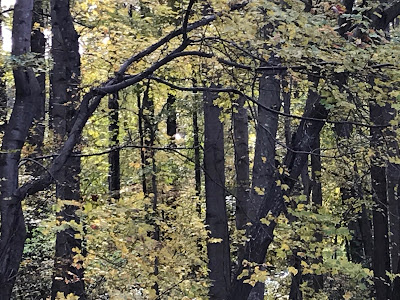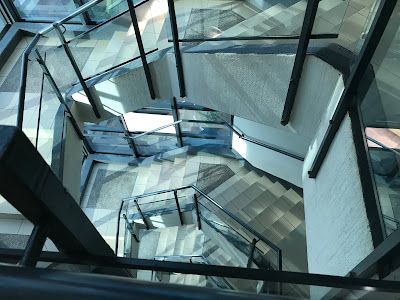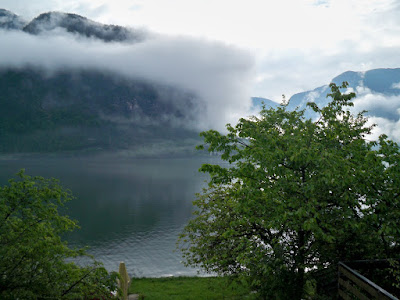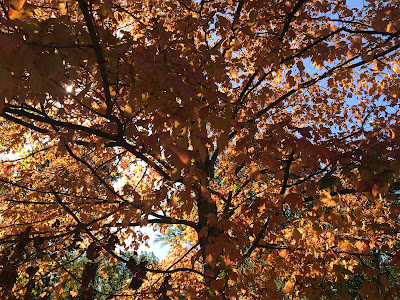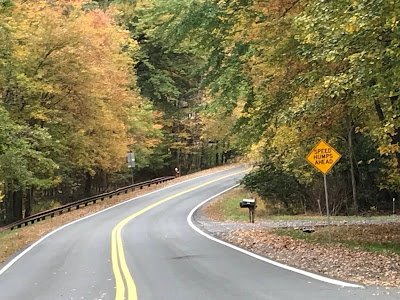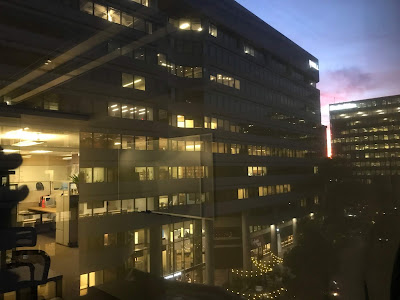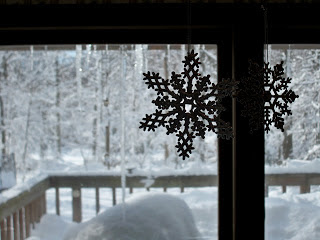Muted Palette
An early walk today amidst a muted palette of autumn color. The pink of the sunrise sky set off the glow of those leaves that still cling to their branches. The air was mild with a feeling of warmth and moisture. A flock of birds passed overhead.
We are heading for a monochromatic world, I know that. Already more limbs are bare than leafed. But it was hard not to revel in the beauty of the moment, not to get from it an optimism about things in general.
The kwanzan cherry tree, which was slower to change and has held its color longer than most, is finally shedding leaves at a frantic pace. But it’s all to prepare for next spring when it will send forth its big-fisted blossoms in a riot of pink.
Yes, there is winter to get through in the meantime. But today, or at least this morning, it was easy to forget about that.
